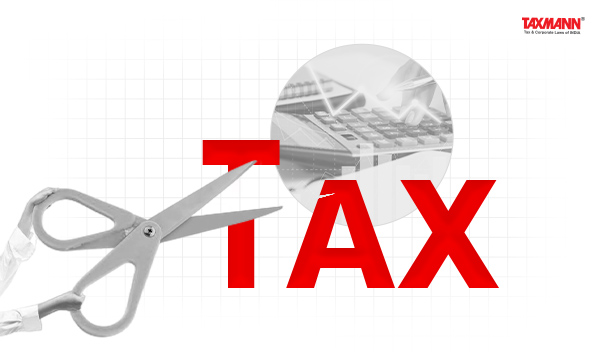Cloud-Based Services Automating Finance & Accounting Requirements of Subscribers Not Taxable as FTS/Royalty | ITAT
- Blog|News|International Tax|
- 3 Min Read
- By Taxmann
- |
- Last Updated on 20 July, 2024

Case Details: BlackLine Systems Inc. vs. ACIT - [2024] 164 taxmann.com 408 (Delhi - Trib.)
Judiciary and Counsel Details
- Dr B.R.R. Kumar, Accountant Member & Anubhav Sharma, Judicial Member
- Nageshwar Rao & Anshika, Advs. for the Appellant.
- Vizay B. Vasanta, CIT-DR for the Respondent.
Facts of the Case
The Assessing Officer (AO) held that technical services were made available to the service recipient for continuous technical support and upgradation. Accordingly, the “make available” clause was met by the assessee and, therefore, such receipts were liable to be taxed as a fee for included services (FIS) as per provisions of article 12 of the India-USA DTAA and as per the provisions of section 9 (1) (vii). Thus, a draft order was issued to assessee.
On appeal, the Dispute Resolution Panel (DRP) affirmed the order of AO. Aggrieved by the order, the assessee preferred an appeal to the Delhi Tribunal.
ITAT Held
The Tribunal held that the meaning of the term “make available” has been explained as per the Memorandum of Understanding of the India-USA DTAA concerning FIS in Article 12 (‘MOU’). It provides that technology will be considered “made available” when the person acquiring the service is enabled to apply the technology. The fact that the provision of the service may require technical input by the person providing the service does not per se mean that technical knowledge, skills, etc., are made available to the person purchasing the service. Similarly, the use of a product that embodies technology shall not per se be considered to “make the technology available”.
The concept of ‘make available’ has been interpreted as transmitting the technical knowledge so that the recipient of service can derive an enduring benefit and utilize the technical knowledge or skill in the future on his own without the aid of the service provider. In other words, to fit into the terminology “make available”, the technical knowledge, skills etc. must remain with the person receiving the services even after the particular contract comes to an end.
Various judicial precedents have also dealt with the issue of what constitutes make available, especially in light of the provisions of the India-USA DTAA and the MOU to the India-USA DTAA.
In the instant case, the services provided by the assessee were fully automated and did not involve human intervention. The only human involvement was during the provision of implementation services and in providing user training services to a minimal/limited extent (in web-based user trainings/instructor-led trainings). Thus, relying upon the decision of the Supreme Court in case of Engineering Analysis Centre of Excellence Private Limited v. CIT [2021] 125 taxmann.com 42 (SC), it was concluded that the assessee did not “make available” any technical knowledge, experience, skill, know-how or processes to group companies which may enable them to apply any technology contained therein without recourse to the assessee.
Hence, it was held that the receipt from subscription of cloud-based services was not taxable under article 12(4)(b) of India-US DTAA.
List of Cases Reviewed
- DIT v. Guy Carpenter & Co. Ltd. (2012) 346 ITR 504 (Delhi) (para 17),
- Engineering Analysis Centre of Excellence Private Limited. v. CIT (CA Nos. 8733-8734 of 2018) (para 20) followed.
List of Cases Referred to
- DIT v. Guy Carpenter & Co. Ltd. [2012] 20 taxmann.com 807/207 Taxman 121/346 ITR 504 (Delhi) (para 17),
- Rackspace, US Inc v. Dy. CIT (International Taxation) [2020] 113 taxmann.com 382 (Mumbai) (para 21),
- Racksapce, US Inc. v. Dy. CIT [2021] 124 taxmann.com 92 (Mumbai – Trib.) (para 21)
- Rackspace v. DCIT ITA No. 1634/Mum/2016 (para 21).
Disclaimer: The content/information published on the website is only for general information of the user and shall not be construed as legal advice. While the Taxmann has exercised reasonable efforts to ensure the veracity of information/content published, Taxmann shall be under no liability in any manner whatsoever for incorrect information, if any.



 CA | CS | CMA
CA | CS | CMA
